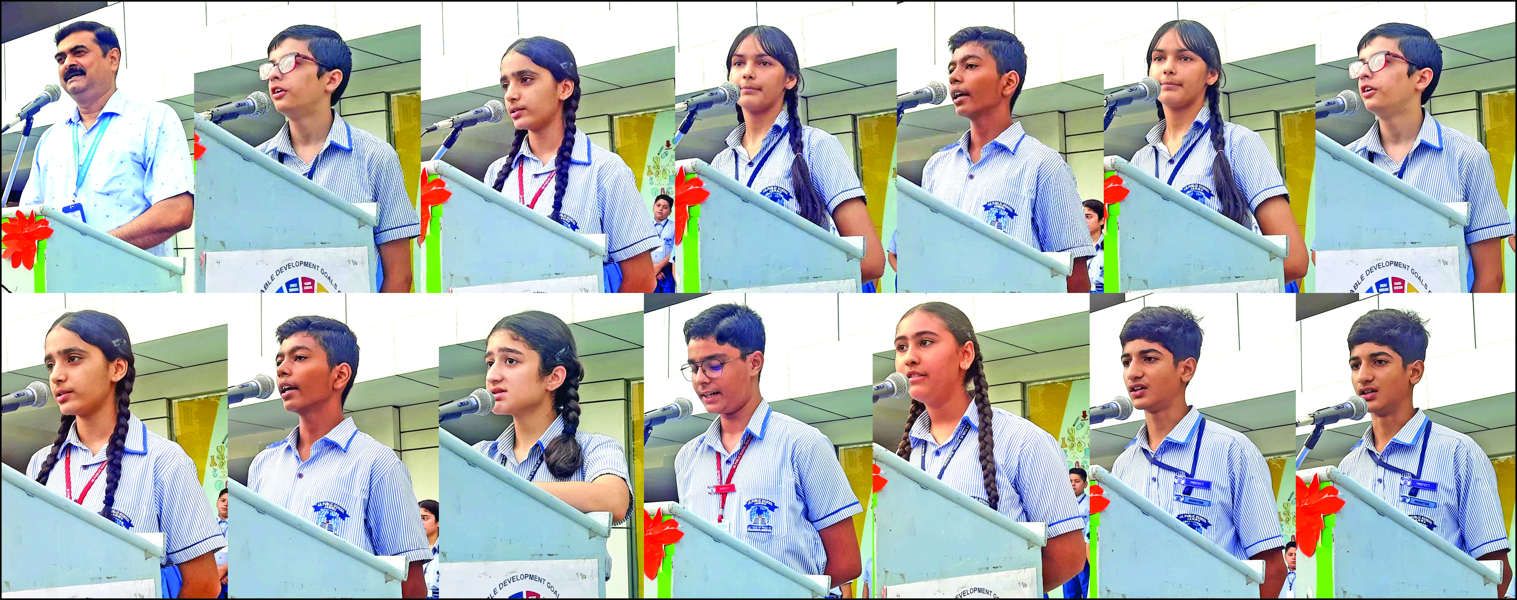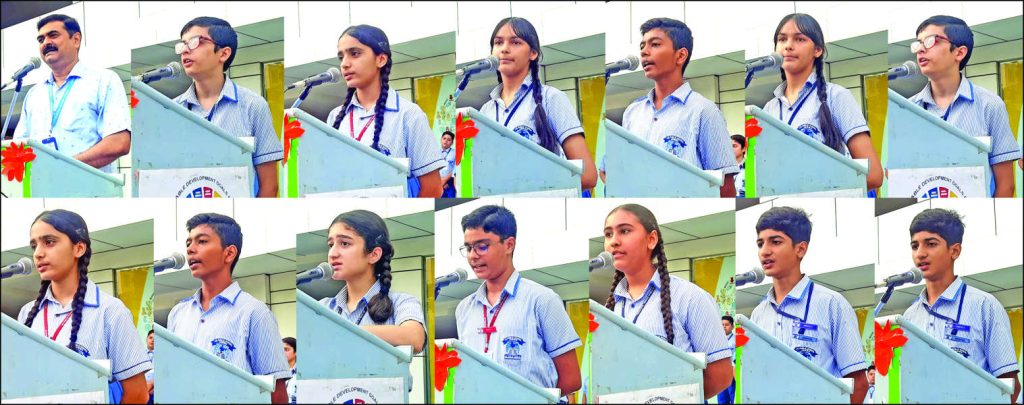
STATE TIMES NEWS
JAMMU: “Addiction is the malaise of our age-and smartphones are its most addictive enablers.” With this thought-provoking statement, Arvin Babouria of Grade VIII Kaveri, along with his classmates, set the tone for a deeply reflective morning assembly on the theme “Impact of Screen Time on Mental Health” at JK Public School, Kunjwani.

Whetting the intellectual appetite of the audience, Aradhya Saini remarked, “Screens are everywhere-nestled in our pockets, perched on our desks, glowing in our living rooms. Be it smartphones, computers or televisions, we lean on them for work, school, entertainment, and social connection. Yet, as our screen time stretches, so do the shadows it casts on our mental well-being.”
Adding gravitas to the discourse, Sukhrasi Sambyal reflected, “Research shows that excessive screen exposure-particularly on social media-is intertwined with rising anxiety, depression and loneliness. Constantly comparing our lives with curated digital perfection corrodes self-esteem and breeds inadequacy. The fear of missing out, or FOMO, shackles us to our screens even when they drain our joy.”
Viraj further deepened the conversation, saying, “For young minds, the consequences are even more profound. Teens tethered to screens often grapple with poor sleep, low moods, and difficulty nurturing real-world relationships. Social media platforms are engineered to be addictive, and endless scrolling dulls our focus and joy in offline pursuits. Yet, it isn’t all bleak-when used mindfully, screens can be allies. Virtual therapy, mental health apps, and online support groups can offer solace. The key, as always, lies in balance.”
Pranjay proposed actionable steps: “Setting healthy boundaries is crucial-limit non-essential screen time, take hourly breaks, mute notifications, and carve out tech-free sanctuaries like the dining table or bedroom. Screens are not our foes, but how we use them shapes our well-being. Intentional screen habits can protect our minds and nurture a healthier, more harmonious life.”
Under the ‘Quotations’ segment, the young orators showcased their literary flair. Neevan shared his self-composed line: “The mind needs rest to thrive, yet the ceaseless whir of screens blurs the line between connection and exhaustion”. Mishti cited Cal Newport: “The more time you spend staring at a screen, the less time you spend being truly human”. Anshveer quoted P. Johnson: “Screens connect us to the world, but sometimes disconnect us from ourselves”. Aditya referenced W. Right: “The digital world offers us everything-except the one thing we truly need: presence”.
Principal JKPS Kunjwani Rajesh Rathore lauded the presenters for spotlighting a pressing modern challenge, noting, “Screens connect, entertain, and empower us, yet their overuse has silently crept into our routines-disrupting sleep, displacing physical activity, and clouding emotional well-being. From anxiety and attention issues to loneliness and low self-esteem, our mental health is paying the price of digital over-dependence.”
Concluding on a hopeful note, he urged, “Let us not reject technology, but learn to master our screen time. Turn off notifications; turn on conversations and bring back real connections. Begin with small shifts-take screen breaks, rekindle hobbies, spend time outdoors, and above all, listen to your mind’s quiet call.”

